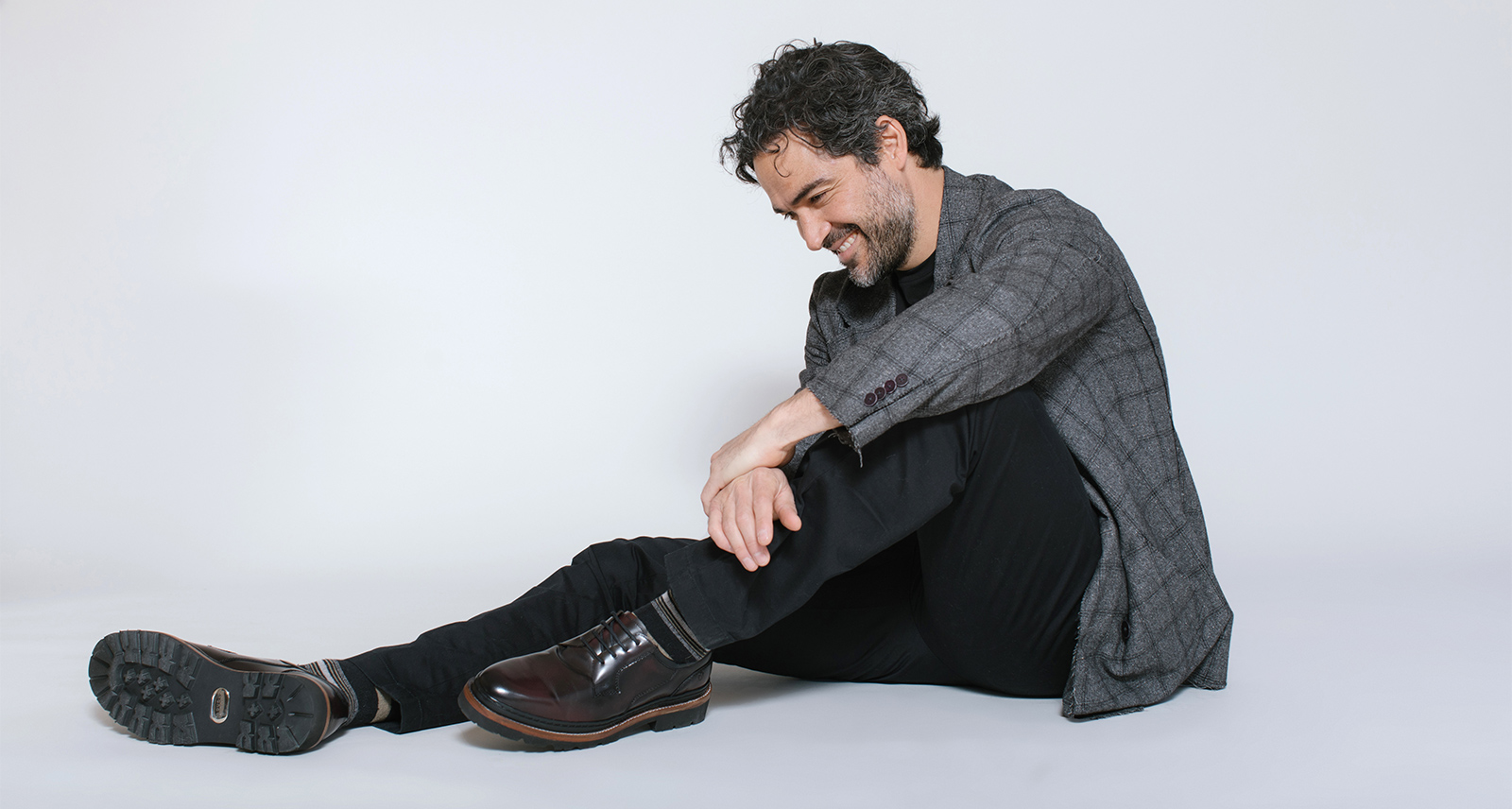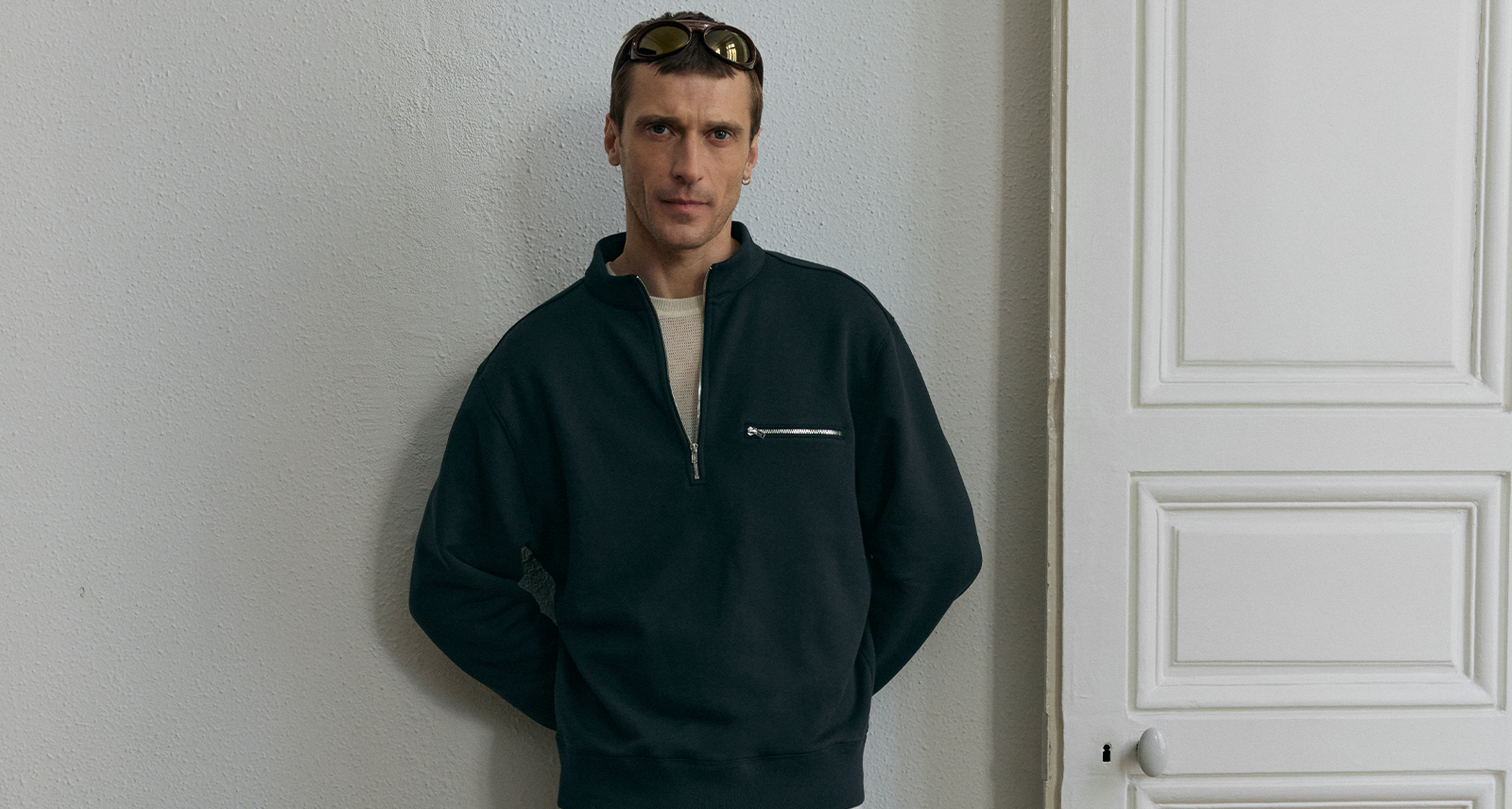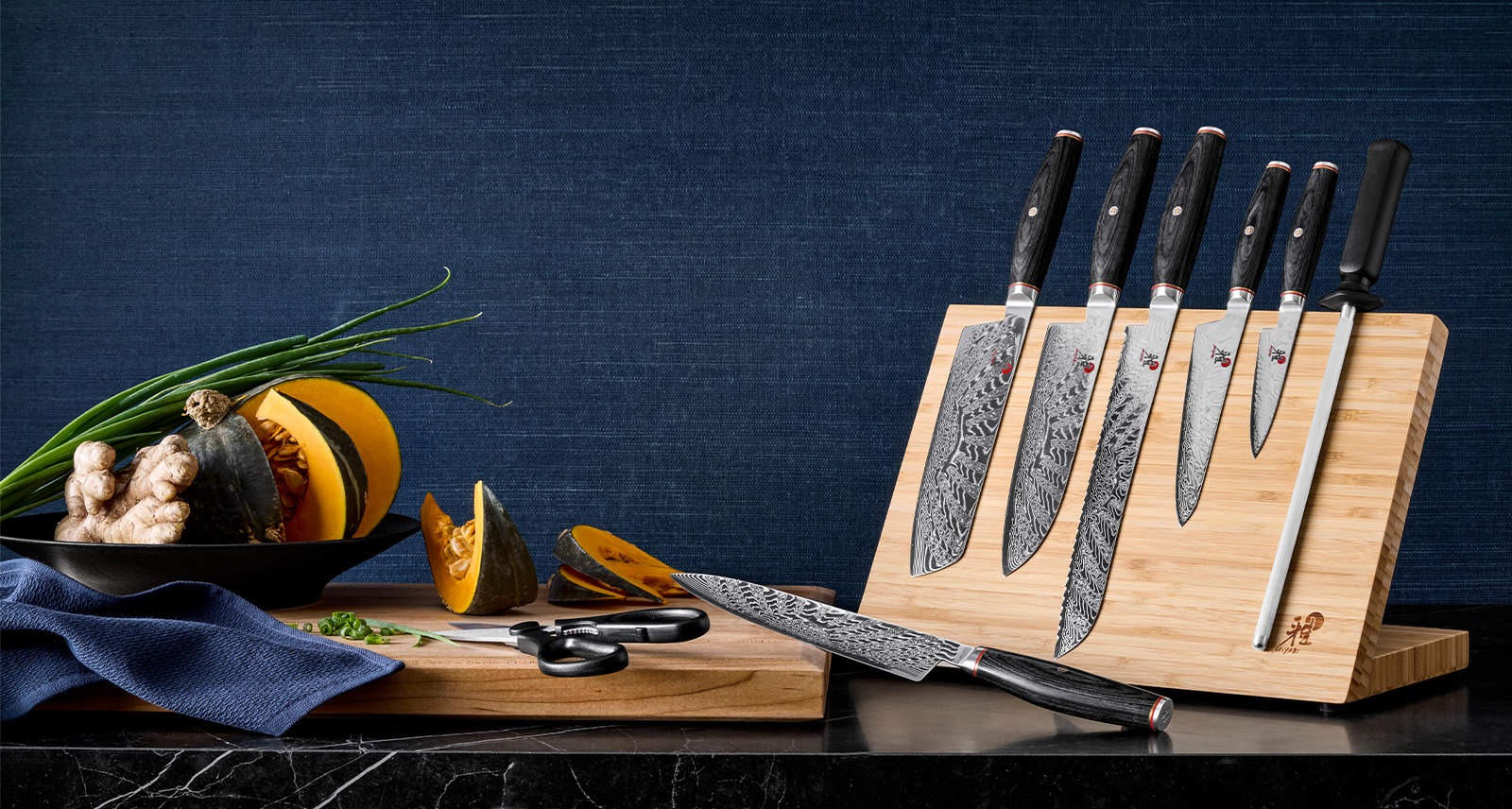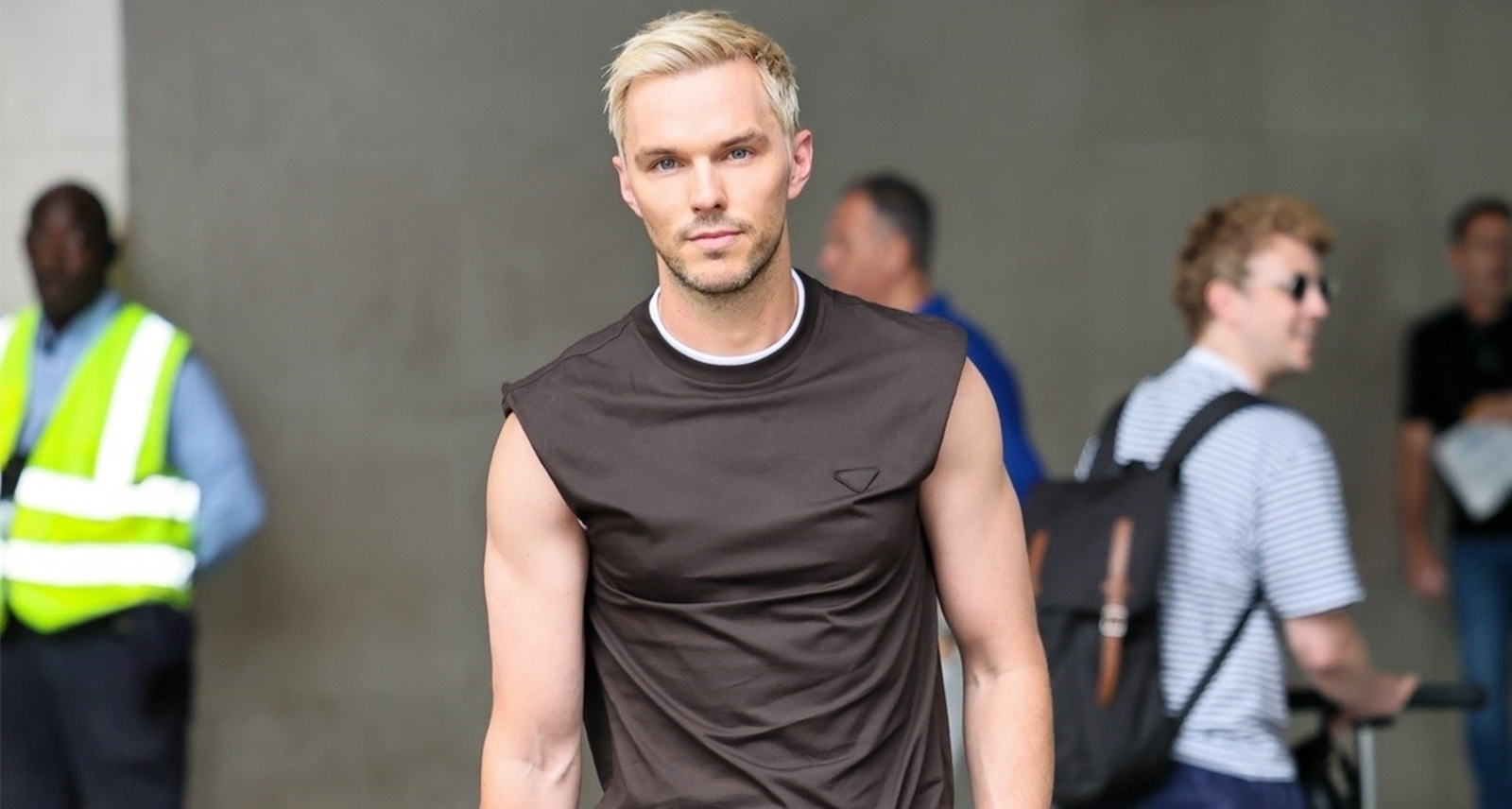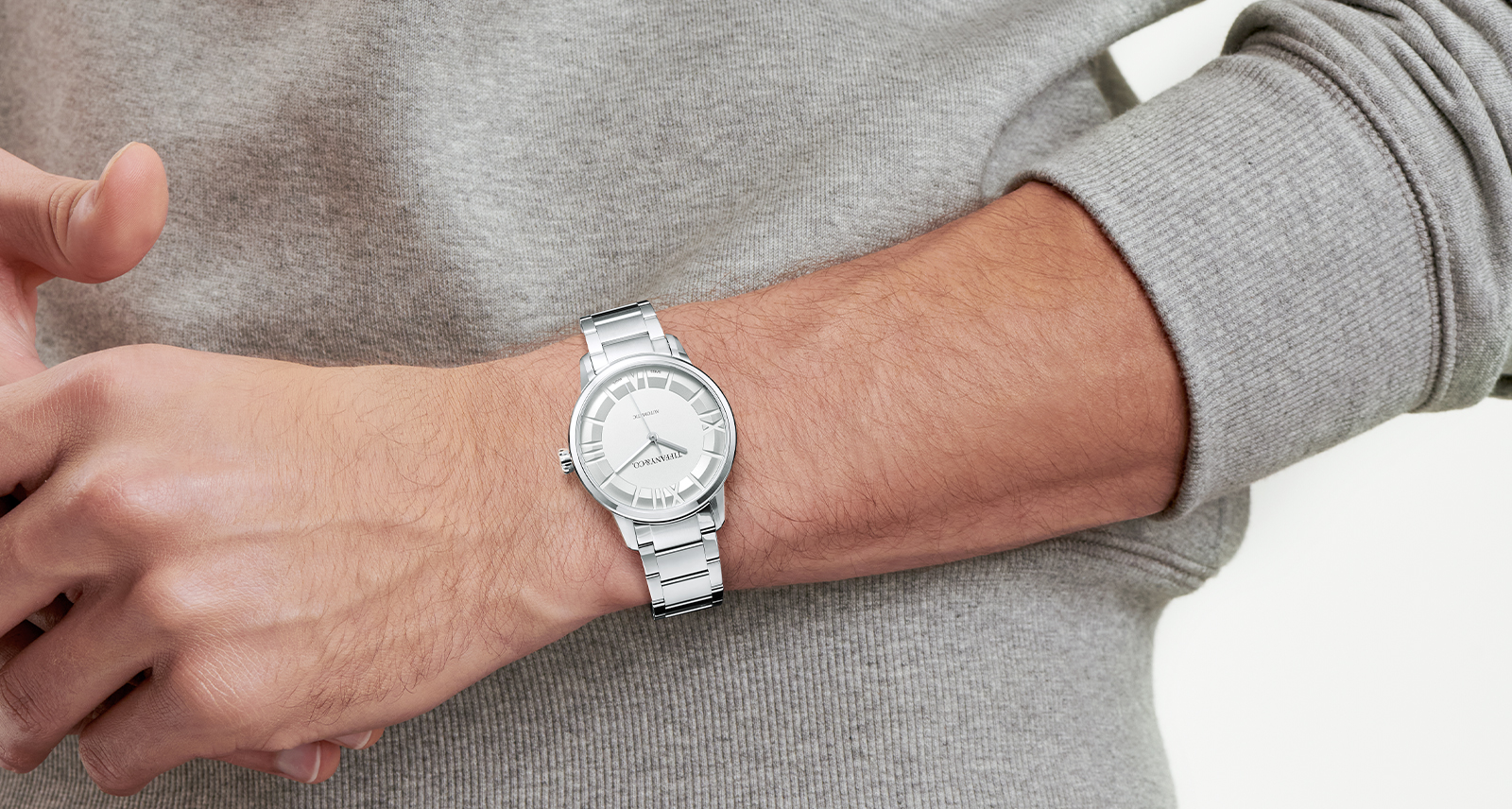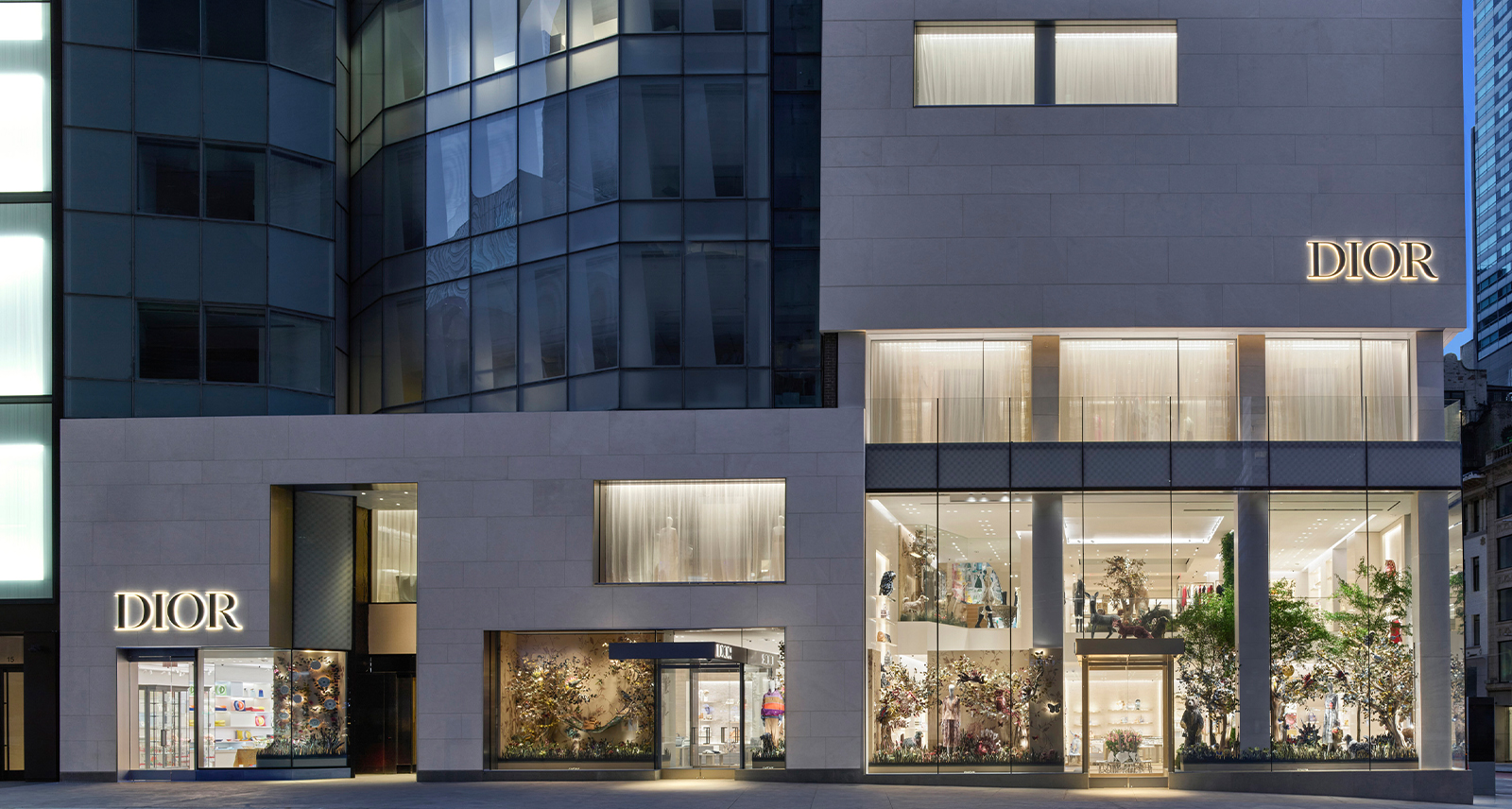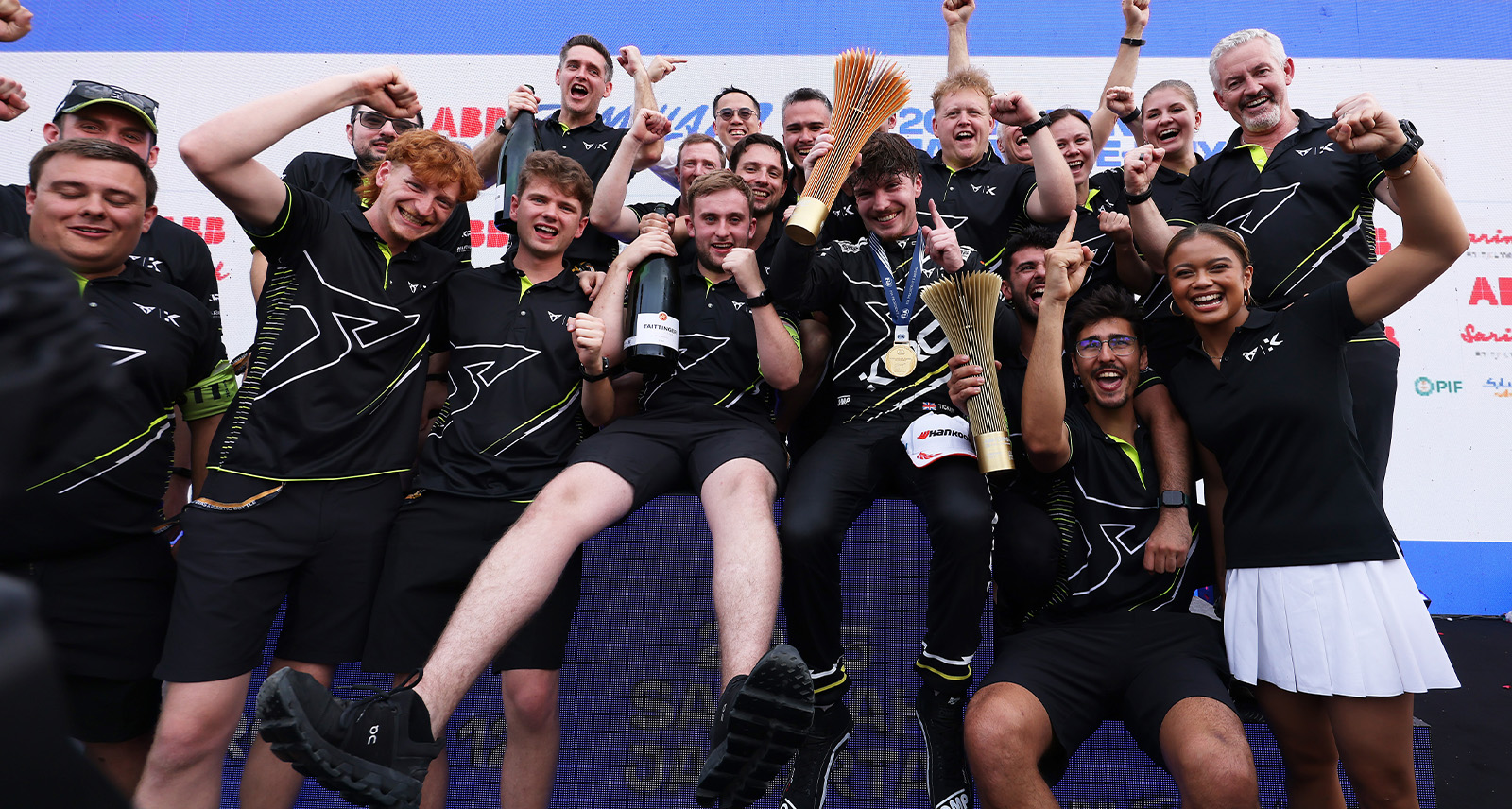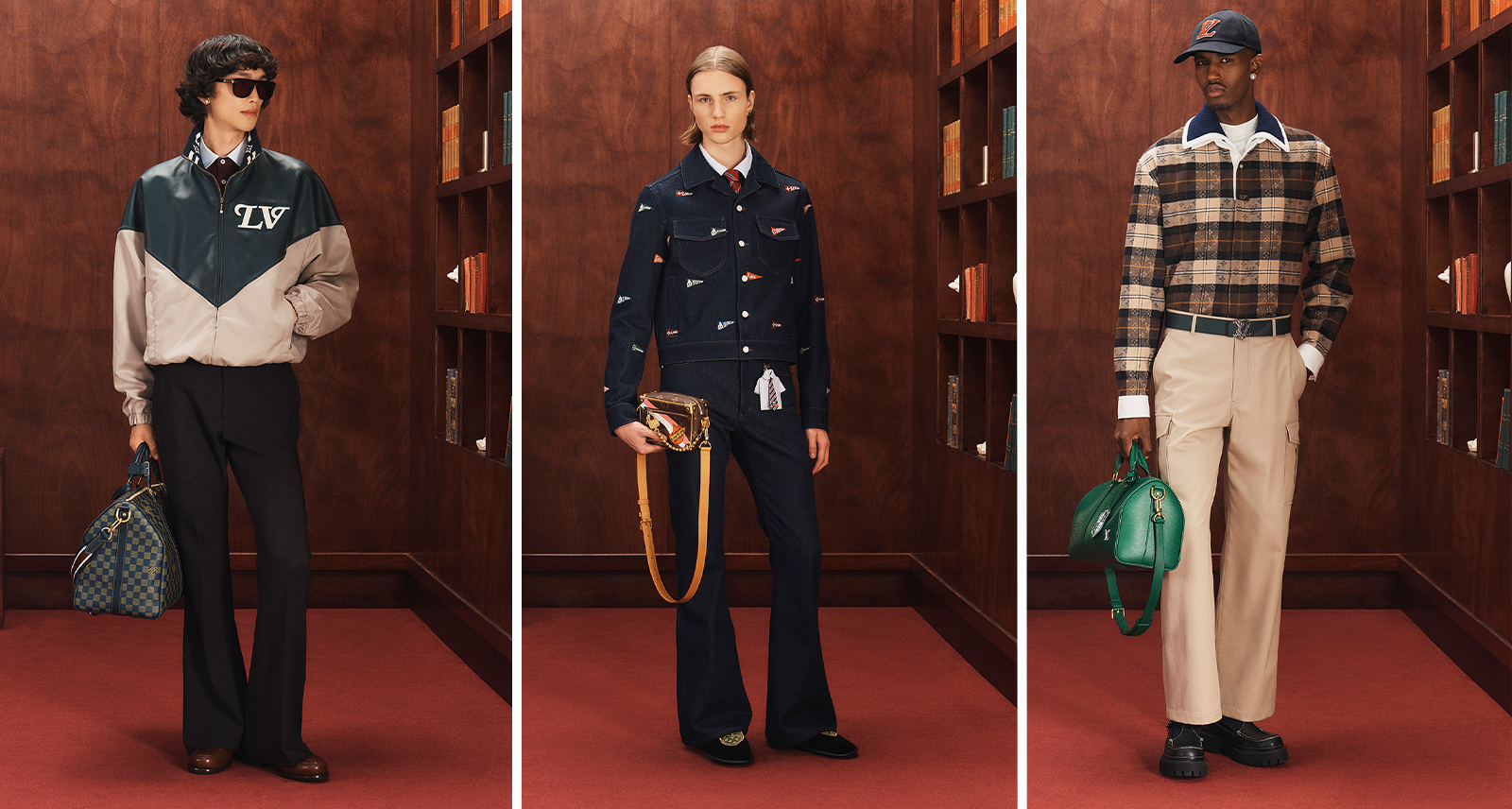Alfonso Herrera on Avoiding Being Typecast, Violence, and His Love of Sneakers
For those whose TV and film viewing is anchored in North America, the name Alfonso Herrera may only have been on your radar for a brief period. Born and raised in Mexico City, Herrera’s acting career dates back roughly 20 years, and includes a significant number of well known shows that aired in Latin America between 2002 and present day. After landing significant roles in Sense8 and The Exorcist, his appearance in the final season of Ozark brought the series an impressive curveball — appearing as cartel leader Omar Navarro’s ruthless nephew, who’s looking to take charge of the family business. We caught up with Herrera this past week to talk about his growth as an actor, his distaste for violence, and his work with the United Nations High Commissioner for Refugees.
You’ve had an interesting set of different roles over the years — between a priest in The Exorcist reboot, playing a queer partner in Sense8, and more recently to the tough-as-nails cartel thug in Ozark. Did you seek out this sort of “bad boy” role intentionally?
No, it just came in a natural way. I embraced the opportunity, and I think it’s incredible to navigate in these different types of roles — it’s fun. Otherwise, what’s the point? It’s good to receive a story, to roll up your sleeves and say ‘OK, now I’m going to try and do something completely different.” For example, when I was working on the Queen of the South and right now on Ozark, there could be at first [glance], some similarities but actually they’re very different. That’s the beauty in this job — to differentiate each gig.
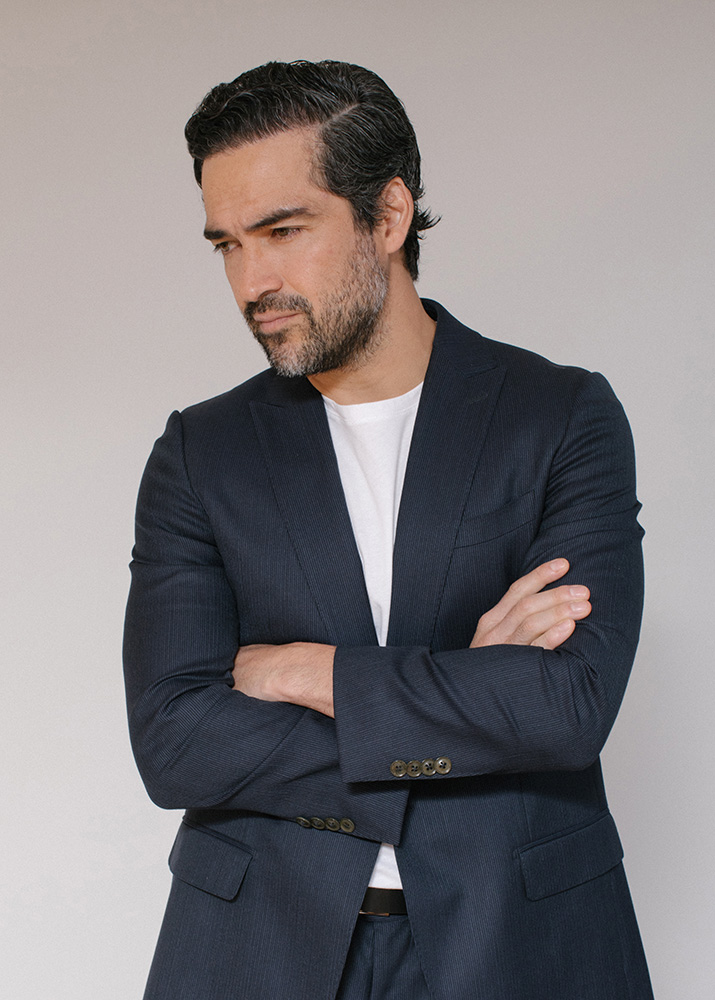
I suppose as an actor, the last thing you want is to be typecast or becoming known for a certain character type. Is that fair to say?
Well, many people have told me that I’ve gotten close to becoming typecast for so many gigs and works in the past in Latin America. In my experience and point of view at least, if you work hard, if you create something that has a solid base, the work is going to speak for itself. Fortunately, when [the audience] is watching the story unfold, they’re going to see the story, see the character and [ideally] not look at someone from the past. When that happens, it means you did something right. If they’re watching and in a certain way they see this guy and it seems familiar to them like [a previous character you did], they start separating from the moment. It’s a good way to know that you did something good — when [the audience] can get into the story and just forget about previous roles and that’s great. Fortunately, I’ve been able to do that sometimes. Not always but sometimes.
“If you wear yourself in a relaxed, comfortable, grounded way, then I think whatever you put on is going to look OK. Otherwise, there’s going to be a disconnection.”
Alfonso Herrera on his casual and comfortable style
Have you liked playing the more villainous kind of character? Is that something you see yourself doing more of? I read in an interview that you’re not too keen on violence, and that filming violent scenes was sometimes a struggle for you. Where do you stand now?
Yeah, I don’t like violence. I hate it actually. This Sunday I went to play a soccer match — I love soccer, by the way. They had to stop the game because my team and the other team started fighting. When that happens I say ‘no, no, no amigos.’ I don’t like that type of thing. And I don’t like guns. People like guns but I don’t like guns, I don’t like violence. The character that I did, Javi, from Ozark, he embraces violence, and it’s part of his nature — and it would be unfair for the story, unfair for the character to judge that situation. So I had to find an organic point where I could connect that inner violence that he has and try to incorporate something that I have.
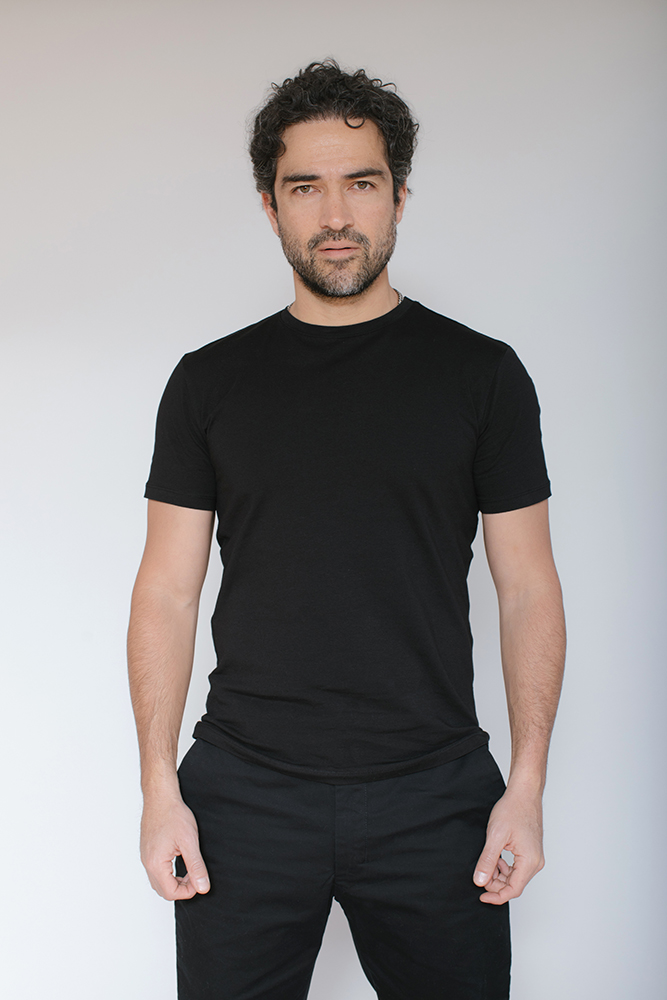
If you look at where you go from here, is there any particular type of role or character that you want to do one day? Or are you more about embracing whatever comes your way?
I think there are certain stories that arrive and you know that you’re probably not the right person for that role or for that story. And sometimes you see a role, and you’re like ‘hey, this could be a good opportunity for me’ and sometimes it happens and sometimes it doesn’t happen. That’s normal, that’s our life. We need to live with hearing ‘no’ constantly and that’s OK. I love sports, I would love to personify something, somehow that connects with sports. I love boxing — when I was younger, I would have loved to personify a Mexican boxer, his name was Salvador Sánchez and in my personal opinion, he was the best Mexican boxer that ever existed. Unfortunately, he died when he was very young, in a car crash. So I obviously can’t play that role anymore. Maybe I could be the trainer or the water boy (Laughs). But I would have loved to tell that story and who knows. I also love how sports creates discipline and a mentality and transforms lives in a certain way. I love that.
You’ve been in a number of great style shoots recently, especially in the last couple of years, that all seem to keep you dressed in more casual looks as opposed to more formal looks and suiting. Is that representative of your own personal style?
It’s more me. I just try to feel comfortable. And when you feel comfortable that’s the best way to present yourself in life. That’s the best way to wear yourself. If you wear yourself in a relaxed, comfortable, grounded way, then I think whatever you put on is going to look OK. Otherwise, there’s going to be a disconnection.
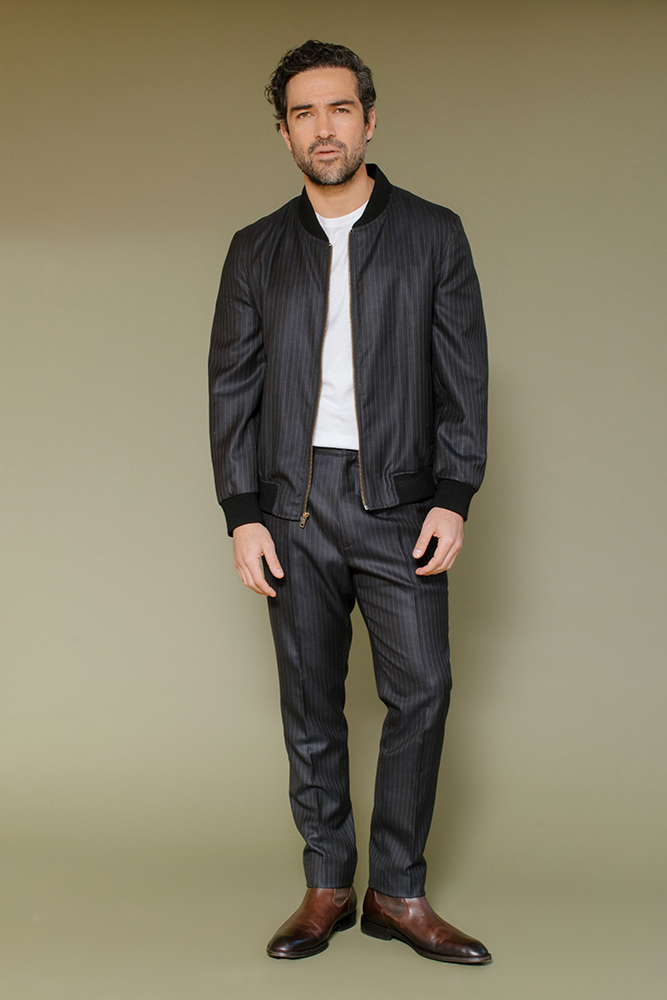
Are there any fashion designers or brands that you’re more drawn to lately?
I love anything that has to do with Adidas Original. I love that brand and when they work with other brands — it’s a very interesting thing especially when it has to do with sports brands. I love Zegna. Specifically because it has very casual shoes and things you can put on and wear in a fast way. I’ve also been wearing Tom Ford a lot lately, and I’ve come to appreciate the structure and symmetry of his work. Nothing too bubbly or overly colourful. I like symmetry and monochromatic colours.
You’re a bit of a sneaker guy, it seems?
I love sneakers — I love them. I think that you can wear them with basically everything but it’s important to know when and with what. Sometimes I’ve received some feedback about not wearing sneakers to certain events. I’ll hear, ‘No no no Alfonso, you’re not wearing sneakers tonight, you’re not going to win this war. Put away the sneakers.’ (Laughs)
What’s one article of clothing in your closet that you’ll never get rid of?
My sneakers.
And this pair of pants I had when I was around 21 years old — they were these orange pants with an interesting texture. I wore them everywhere. All the guys, directors, fellow actors, they would say ‘those orange pants, they can walk by themselves.’ I loved them but family, friends, coworkers, they made fun of me. And I made fun of myself, but I had fun with it.
Shifting direction a bit, I know you’ve been involved with the United Nations High Commissioner for Refugees (UNHCR) for a few years now. How did that come about and what kind of things have you been working on?
We started to collaborate in 2018 in a very normal and [organic] way. They reached out to me and asked if I would like to help with some dynamics. I work specifically with the office in Latin America. We started working together and we got along very well and suddenly they invited me to be a collaborator that has a high standard profile and we worked a bit more and then they invited me to be a Goodwill Ambassador. Basically you have the possibility to have a microphone in front of you and the ability to make a difference for people that are struggling. It’s good if you have this opportunity. What we are seeing in Ukraine, it’s heartbreaking, but it’s not just happening there. The situation in Venezuela is also very complicated. The situation in the Northern Triangle of Central America. What’s happening in Myanmar, what’s happening in Somalia. There is a huge refugee crisis right now. And my position is just to transmit these messages. The real heroes are on the frontlines helping all these families and kids that are trying to have a better life, that work with the UNHCR on the field. Those are the real heroes. Those are the guys. It’s incredible, the work that people in the local offices of the UNHCR do.
And it’s also [important] to understand your position. If there’s a spotlight [to give] it should be on them. All the situations all over the world are important — we don’t need to focus on certain spots. We need to look at the whole refugee crisis we’re living in right now. And if we can create this consciousness, of sharing this message, helping people understand we need to do something, that would be great. This is my position, my purpose, my role.
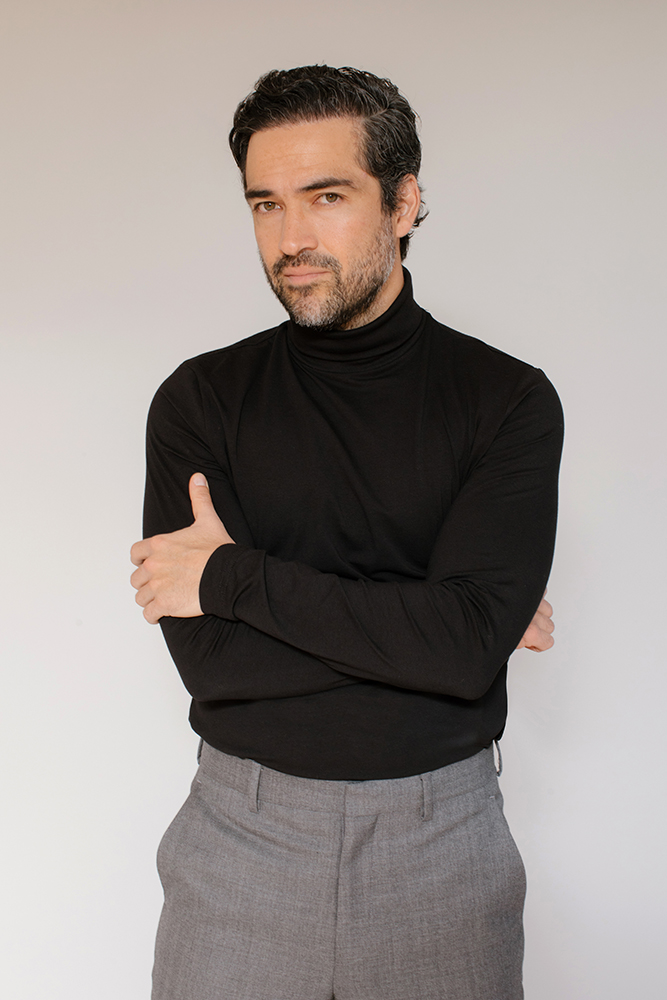
So what comes next for you?
Right now I’m in LA, shooting the new Zach Snyder film called Rebel Moon. I’ll be here for a couple of months shooting this movie. [Zach] is the sweetest guy — I met him not so long ago on set. He has the best crew, he has the best atmosphere. I’m very excited. I haven’t officially started yet — I’ve been through camera tests, makeup tests, hair, etc. but I can already say he’s the best. And that’s why he’s the big guy. The guys that really transform the industry, they know their role, they’re down to earth and Zach is amazing — his mind truly works on another level. That’s all I can share on the subject for now!
Season four of Ozark is streaming on Netflix now.
